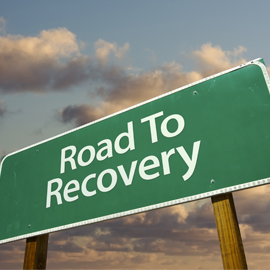As a parent who is either going through a dissolution proceeding, or has an existing Parenting Plan or other custody order, there may come a time when you suspect that the other parent is suffering from an addiction to drugs or alcohol. Even if you don’t believe that there is an addiction problem, you may learn that the other parent is occasionally impaired due to the use of an intoxicant. Many clients ask about their options in these circumstances.
Warning Signs of Commonly Abused Drugs (http://www.helpguide.org/articles/addiction/drug-abuse-and-addiction.htm)
- Marijuana: Glassy, red eyes; loud talking, inappropriate laughter followed by sleepiness; loss of interest, motivation; weight gain or loss.
- Depressants (including Xanax, Valium, GHB): Contracted pupils; drunk-like; difficulty concentrating; clumsiness; poor judgment; slurred speech; sleepiness.
- Stimulants (including amphetamines, cocaine, crystal meth): Dilated pupils; hyperactivity; euphoria; irritability; anxiety; excessive talking followed by depression or excessive sleeping at odd times; may go long periods of time without eating or sleeping; weight loss; dry mouth and nose.
- Inhalants (glues, aerosols, vapors): Watery eyes; impaired vision, memory and thought; secretions from the nose or rashes around the nose and mouth; headaches and nausea; appearance of intoxication; drowsiness; poor muscle control; changes in appetite; anxiety; irritability; lots of cans/aerosols in the trash.
- Hallucinogens (LSD, PCP): Dilated pupils; bizarre and irrational behavior including paranoia, aggression, hallucinations; mood swings; detachment from people; absorption with self or other objects, slurred speech; confusion.
- Heroin: Contracted pupils; no response of pupils to light; needle marks; sleeping at unusual times; sweating; vomiting; coughing, sniffling; twitching; loss of appetite.
As an initial matter, if you have a reasonably good co-parenting relationship with the other parent, the first step is to directly address the issue, preferably at a time when you do not believe they are impaired. Without blaming, shaming or creating a scene, try to express your concerns about the perceived issue. Make sure you have this conversation without the child present. Keep the conversation child focused, and express your concerns relative to your child’s health and safety. Be clear with the other parent that they are free to live their life as they choose, but when those choices impact your shared child’s safety you have an obligation to protect the child.
If a parent is impaired when you are dropping off your child, waiting for a “good time” to have a conversation may not be an option, as the child’s immediate safety may be at risk. Under those circumstances you may have to immediately intervene by either suggesting the visit be rescheduled, or offering to drive the child (and perhaps the other parent) to your own residence. If the other parent demands to leave with the child, you may have to refuse. Ultimately, you will need to assess the risk to the child, with the awareness that a refusal to permit residential time to proceed as scheduled may be determined to be contemptuous. That is to say, the court may find your refusal to permit visitation was in bad faith, and you may face sanctions or other penalties, and the other parent may be granted make-up time and awarded attorney fees.
If there is a history of substance abuse, the issue may also have been addressed in the Parenting Plan. One parent may have the authority to demand that the impaired parent take a drug test, and visitation will only be permitted if the impaired parent produces a clean result. There are several types of drug tests, and you will want to ensure the appropriate test is utilized for the person’s substance of choice. http://www.questdiagnostics.com/home/companies/employer/drug-screening/products-services.html. If you believe substance abuse is an issue, and a Parenting Plan has not been entered by the court, you may want to consider these types of safeguards.
Ultimately, it may be necessary for the parent to engage in substance abuse treatment, either inpatient or outpatient. Hopefully, the parent will voluntarily engage in services, but if not, you may need to seek court intervention to attempt to modify residential arrangements until the parent receives the necessary treatment. The key to any intervention, testing or treatment, should be to help the parent so as to facilitate a continued relationship with the child in an environment that is safe for the child.

